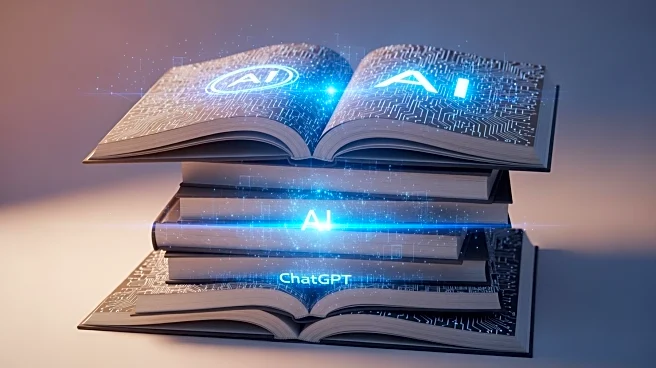What's Happening?
ChatGPT, a language model developed by OpenAI, has been credited as an author in several scientific papers, raising questions about its role in scientific literature. The tool has been used to assist in medical
education and string theory research, among other fields. While it can generate text and simulate the creation of new physical theories, its inclusion as an author has sparked controversy. Critics argue that AI cannot take responsibility for the content it produces, a requirement for scientific authorship. Some journals have banned AI from being credited as an author, though its use in writing research is permitted if disclosed.
Why It's Important?
The debate over ChatGPT's role in scientific authorship highlights broader concerns about AI's impact on research integrity. While AI can enhance writing efficiency and style, it cannot replace human expertise and accountability. The controversy underscores the need for clear guidelines on AI's use in scientific literature to prevent ethical breaches and maintain trust in scientific knowledge. As AI tools become more sophisticated, the scientific community must navigate the balance between leveraging AI's capabilities and preserving the integrity of research.
What's Next?
The scientific community is likely to continue discussions on the ethical use of AI in research. Journals may develop stricter guidelines to regulate AI's role in authorship and ensure transparency in its use. Researchers will need to adapt to these changes, using AI responsibly to complement their work while maintaining accountability for their contributions. The evolution of AI tools will require ongoing assessment of their impact on scientific writing and the development of policies to address emerging challenges.
Beyond the Headlines
The controversy over AI authorship raises questions about the nature of scientific discovery and the definition of a scientist. As AI tools become more integrated into research processes, the scientific community must consider the implications for creativity, accountability, and the future of scientific inquiry. The debate also highlights the potential for AI to democratize access to scientific writing, particularly for non-native English speakers, while emphasizing the importance of human oversight.











